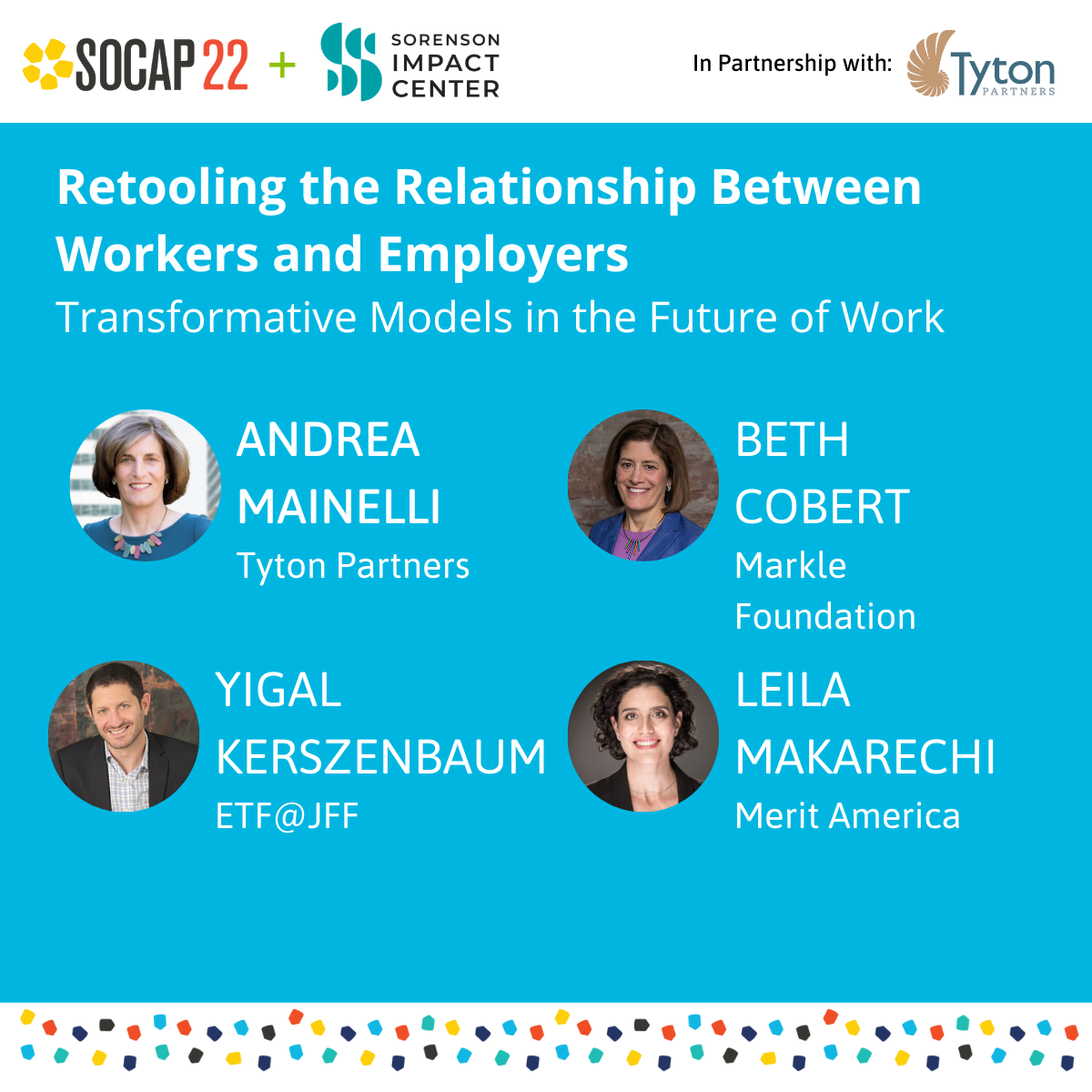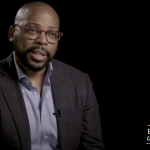The future of work is upon us as new industries grow, labor market needs shift, and employers are chronically “deficient” in talent. At the same time, workers — both with and without college degrees — often lack the opportunities, skills, and training needed in today’s economy.
Transformative models have emerged to develop new pathways to train America’s workforce and create opportunities for all. Often initiated and run by nonprofits, these models rewrite the relationship between workers and employers, uncover worker skills, and bring together employers and alternative education providers.
A recent webinar from Tyton Partners and SOCAP featured representatives from three high-impact initiatives advancing some of these innovative models that are rethinking the future of work. They shared more about these scalable solutions and the opportunities and challenges they face.
Andrea Mainelli, Senior Advisor at Tyton Partners, outlined the scope of the challenge by noting that more than 40 million Americans – nearly half the workforce – are in jobs that don’t pay a living wage. Many don’t have two- or four-year degrees due to cost, time, and other barriers. At the same time, she said, “Employers need people. They may not know who these people are or how to retrain or help them along the way. These are the workers we’re talking about; these are the employer challenges we’re talking about.”
One of the organizations working to address these challenges is the Markle Foundation, which created the Rework American Alliance to people move from low-wage roles into more sustainable jobs in the wake of the COVID-19 pandemic and subsequent labor market shakeup.
Beth Colbert, Chief Operating Officer at the Markle Foundation, said about 40 organizations are partners in the alliance, including employers, worker-facing organizations, civil rights groups, and unions. “We’re focused on the workers who have great skills and talent and experience but may not have that bachelor’s degree that has been too much of a barrier,” she said. “We’re working on connecting organizations that reach workers to organizations that reach employers. We’re helping employers learn different ways to look for, find, and advance talent.”
These innovative programs attract capital from organizations like ETF@JFFLabs, where Yigal Kerszenbaum is Founder & Managing Director. “We are an early-stage impact investment fund investing in tech companies that are upskilling, training, and connecting low-middle income earners into better career pathways and economic mobility,” he said.
As an initiative with Jobs for the Future, Kerszenbaum said the ETF@JFFLabs team represents the people they are working to support, noting that he is an immigrant who learned English, attended a community college, and went on to a four-year school before landing work in impact investing. “We’re trying to create access and opportunity,” he said.
Leila Makarechi, Chief Business Officer at Merit America, also has a personal connection with her work as the daughter of Iranian immigrants and a first-generation America. At Merit America, she oversees funding streams for the nonprofit that prepares low-wage workers for in-demand careers. “Our model is unique in that it works for people who work, and it’s built for national scale,” she said. “Our ‘why’ is best demonstrated by our learners.”
In three years, Merit America has served more than 300,000 learners, most of whom identify as People of Color. With an 80% graduate rate, the average annual salary once workers complete the program is more than $50,000 — and Makarechi said Merit America is on track to drive $1 billion in wage gains across the United States.
Watch the Webinar on Transformative Programs Reshaping the Future of Work:
Speakers:
Andrea Mainelli, Senior Advisor at Tyton Partners
Yigal Kerszenbaum, Founder & Managing Director, ETF@JFF
Beth Colbert, Chief Operating Officer, Markle Foundation
Leila Makarechi, Chief Business Officer, Merit America






